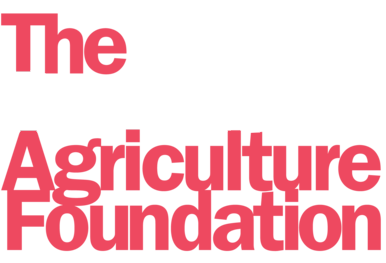A Mental Health Journey By Megz Reynolds
Farmers are used to adversity. We are used to our livelihoods, and our families affected by forces beyond our control.
We watch as our entire crop is destroyed in a ten-minute storm. We grieve powerless, as disease rips through our herd or flock. We watch prices tank when production is good, we pray for rain, for markets, for health and for safety. And, on a daily basis we pray for an understanding of who we are and what we do.
My first true experience with isolation, and with all the feelings above came in 2016. A hailstorm with monsoon winds ripped through our farm at the beginning of harvest. In a matter of minutes, I watched as large hailstones beat the ground, branches were torn from trees and rivers of water ran down the lane. Even though I could not see our fields I knew that our crops would be shelled out, beaten down, underwater and destroyed. For the first time in my life I understood how little control I had as a farmer.
That storm did more than just affect our balance sheet that year, it affected my wellbeing, my sense of self-worth and left me feeling completely and utterly isolated. In that moment I felt as though I had failed as a farmer, failed as a wife and as a parent. I felt like I couldn’t provide for my family and that my only worth was in my life insurance policy. I felt as though I was digging my own grave to follow my dreams.
I know that many of you can relate to the thoughts and emotions I have just described. Being overwhelmed by stress and anxiety, feeling like a failure, worrying about paying the bills and putting food on your family's table. Agriculture is an industry with a foundation of deep rural roots, hard work, resilience, strength and community. In order to uphold that image, those traits can also be the industry’s weakness as they become barriers for speaking up and seeking help.
According to research done in 2021 by the University of Guelph, 1 in 4 Canadian Farmers felt like their life was not worth living, wished that they were dead, or had contemplated taking their own life in the last 12 months. We are an industry that has always prided ourselves on our resiliency and yet the same study found that 83% of farmers have lower resiliency scores than the USA general population. To me this speaks directly to the overall mental health of our industry, we do not have health without mental health and our mental health is struggling.
I used to keep everything inside, I thought that if I were to talk about my feelings and my struggles it would mean that I was weak, that I wasn’t capable, it would mean that I was less of a farmer. What I have learnt is that we all struggle. The old mentality of ‘cowboying up?’ doesn’t actually do anyone any good, in fact it usually causes more problems. Acknowledging and then accepting that I needed help, that I needed to talk to others that understood what I was going through was one of the scariest and bravest things I have ever done. Needing help is not about showing weakness, it is in fact about being brave. Brave enough to accept yourself in that moment, to refuse to let something destroy you, and to find what you need to take care of yourself, and in turn take care of your loved ones.
The Do More Agriculture Foundation was founded 5 years ago to champion mental health in agriculture and has been working to end the stigma, create community around mental health, connect individuals with the resources that exist and work to change the culture to one where all are supported and empowered to take care of their mental well beings.
We are hard wired to connect with each other, to share with each other and to support each other. Now more than ever we need to remember that. We need to remember each other. We need to check in on our family, our friends, our community members, and our colleagues, and when we check in we need to be ready to truly listen.
If you or someone in your family or farm team are going through a hard and stressful time, reach out to a professional. For local crisis contacts and resources visit https://www.domore.ag/crisis-contacts.
